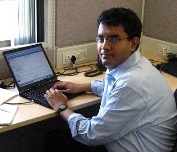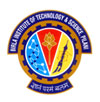- Home
- Message from Chairs
- Conference Program
- Workshops' Schedule
- Organizing Committee
- Technical Program Committee
- Keynote Speakers
- Invited Speakers
- Panel Discussions
- Demos & Exhibits
- Poster Session
- PhD Forum
- Mobile India 2014
- E6 Workshop
- NetHealth Workshop
- Social Networking Workshop
- Math of Networks Workshop
- Call For Participation
- Paper Submission
- Venue & Accomodation
- Visa
- Visiting Bangalore
- Participant Travel Grants
- Patrons
- Sponsorship Opportunities
- Registration
- Registration Fee Details
Panelists
Sanjoy Paul (sanjoy.paul@accenture.com) is Managing Director at Accenture serving as the Country-Head of Accenture Technology Labs India. Dr. Paul has been leading Innovations for Emerging Economy at Accenture Technology Labs and Software Engineering R&D globally across Accenture. Prior to joining Accenture, Sanjoy was Associate Vice President and General Manager at Infosys Technologies where he led research and innovation in the field of Communications, Media and Entertainment. Earlier, he was also a Research Professor at Rutgers University, Founder of RelevantAd Technologies, Director of Wireless Networking Research at Bell Labs, Lucent Technologies, and CTOs of two start-up companies based in New York. Sanjoy is known for many innovations, including, iSmart Power Strip, an award-winning innovation in the field of Energy Management; Reliable Multicast Transport Protocol, one of the first reliable transport protocols over IP Multicast; and Smart Content Caching, the key concept behind Lucent Technology’s Internet Content Distribution and Delivery product line.
Sanjoy has over twenty five years of technology expertise, specifically in the areas of Mobile Wireless Networking and Applications for various Verticals, such as, Healthcare, Retail, Energy, Transportation etc.; Cloud Computing and Applications for Emerging Economy; Software Engineering Tools and Frameworks; Future Internet Architecture and Design; and Security Technologies including multi-modal Biometrics. He served as an editor of IEEE/ACM Transactions on Networking, Guest Editor of IEEE Network Special Issue on Multicasting, Steering Committee member of IEEE COMSNETS, General Chair of ICDCN 2011, IMSAA 2010 and COMSWARE 2007; Technical Program Chair of COMSWARE 2006, and as a Technical Program Committee Member of several IEEE and ACM International conferences.
Sanjoy has authored two books, the first one on Multicasting (Kluwer, 1996), and the second on Digital Video Distribution (Wiley, 2010), published over 100 papers in International Journals and refereed Conference Proceedings, and authored over 100 US patents (35 granted, 70+ pending). He is the co-recipient of 2013 Thomas Alva Edison Patent Award from the R&D Council of New Jersey, the co-recipient of 1997 William R. Bennett award from IEEE Communications Society for the best original paper in IEEE/ACM Transactions on Networking and the co-recipient of Infosys Excellence Award for Innovations and Thought Leadership for the invention of iSmart Power Strip. Sanjoy, with his colleague, also received MIT Technology Reviews’ Grand Challenges for India 2010 award for innovation in Smart Energy.
Sanjoy holds a Bachelor of Technology degree from IIT Kharagpur, an M.S and a Ph.D. degree from the University of Maryland, College Park, and an MBA from the Wharton Business School, University of Pennsylvania. He is a Fellow of IEEE and a Fellow of the IET.
Romit Roy Choudhury is an Associate Professor of ECE at the University of Illinois at Urbana Champaign (UIUC). He joined UIUC from Fall 2013, prior to which he was an Associate Professor at Duke University. Romit received his PhD in the CS department of UIUC in Fall 2006. His research interests are in wireless protocol design mainly at the PHY/MAC layer, and in mobile computing at the application layer. Along with his students, he received a few research awards, including the NSF CAREER Award, the Google Faculty Award, best paper at Personal Wireless Communications conference, Hoffmann Krippner Award for Engineering Innovations, etc. Visit Romit's Systems Networking Research Group (SyNRG), at http://synrg.csl.illinois.edu
Krishna Gummadi is a tenured faculy member and head of the Networked Systems research group at the Max Planck Institute for Software Systems (MPI-SWS) in Germany. He received his Ph.D. (2005) and M.S. (2002) degrees in Computer Science and Engineering from the University of Washington. He also holds a B.Tech (2000) degree in Computer Science and Engineering from the Indian Institute of Technology, Madras.
Krishna's research interests are in the measurement, analysis, design, and evaluation of complex Internet-scale systems. His current projects focus on understanding and building social Web systems. Specifically, they tackle the challenges associated with protecting the privacy of users sharing personal data, understanding and leveraging word-of-mouth exchanges to spread information virally, and finding relevant and trustworthy sources of information in crowds.
Krishna's work on online social networks, Internet access networks, and peer-to-peer systems has led to a number of widely cited papers and award (best) papers at AAAI's ICWSM, Usenix's OSDI, ACM's SIGCOMM IMW, and SPIE's MMCN conferences.
Prof. Rajat Moona received his BTech degree in Electrical Engineering from IIT Kanpur in 1985 and a PhD degree in Computer Science and Automation from IISc Bangalore in 1990. He worked for about one year as Scientific Officer in IISc Bangalore and then joined as a faculty member of IIT Kanpur in 1991 where he is a full Professor in the department of CSE. In recognition of his research, Prof. Rajat Moona was offered the prestigious Poonam and Prabhu Goel Chair Professorship by IIT Kanpur in 2008 and he has been a recipient of Indo-US Science and Technology Fellowship. He had also been a senior Engineering Manager in Mentor Graphics India during 2002-04 where he led a team to develop a tool for embedded system design that is now a product from Mentor Graphics.
He has taught a number of courses at IIT Kanpur, both at undergraduate and postgraduate levels. He has also supervised about 85 postgraduate theses. He along with his students and colleagues has authored 7 patents, about 36 research papers and 2 books.
He along with his students and National Informatics Centre has defined the Key Management System and layout of the data in smart card used by various government departments. He is involved in defining the RFID applications in areas such as electronic toll collection. The research area of Prof. Rajat Moona spans over embedded computing, computer security, VLSI design Operating Systems and High Performance Computing.
Currently, Prof. Moona heads the Centre for Development of Advanced Computing (C-DAC) in capacity of Director General and leads C-DAC's initiatives in the areas of High Performance Computing, Multimedia Computing, Professional Electronics, Free and Open Source Software, Cyber security & cyber forensics, Health Informatics, e-Governance and Education & Training.
Very recently, he has been selected to receive the prestigious VASVIK Award for his contributions to the advancement of Information and Communication Technologies.
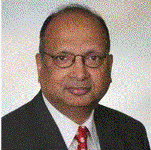 Professor Emeritus Arogyaswami Paulraj, Stanford University, is a pioneer of MIMO wireless technology that is now incorporated into all new wireless systems. He led a large research group at Stanford University in Smart Antennas from 1993 to 2010.
Professor Emeritus Arogyaswami Paulraj, Stanford University, is a pioneer of MIMO wireless technology that is now incorporated into all new wireless systems. He led a large research group at Stanford University in Smart Antennas from 1993 to 2010.
Professor Paulraj founded Iospan Wireless that establishedMIMO/OFDMA as the core technology for 4G cellular and co-founded Beceem Communications that was a market leader in 4G-WiMAX semiconductors. During his 30 years in India he founded three national level laboratories and led the APSOH sonar project, the world’s top anti-submarine sonar.
Professor Paulraj’s recognitions include the IEEE Alexander Graham Bell Medal and the Padma Bhushan (an award in India). He is a member of several scientific academies including the US National Academy of Engineering and the Royal Swedish Academy of Engineering Sciences. Most recently, he has been awarded the prestigious 2014 Marconi Prize and Fellowship.
Dr. K. K. Ramakrishnan is a well-known member of the networking research 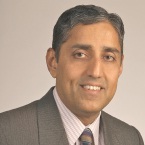 community. Until recently, he was a Distinguished Member of Technical Staff at AT&T Labs-Research. He joined AT&T Bell Labs in 1994 and was with AT&T Labs-Research since its inception in 1996. Prior to 1994, he was a Technical Director and Consulting Engineer in Networking at Digital Equipment Corporation. Between 2000 and 2002, he was at TeraOptic Networks, Inc., as Founder and Vice President.
community. Until recently, he was a Distinguished Member of Technical Staff at AT&T Labs-Research. He joined AT&T Bell Labs in 1994 and was with AT&T Labs-Research since its inception in 1996. Prior to 1994, he was a Technical Director and Consulting Engineer in Networking at Digital Equipment Corporation. Between 2000 and 2002, he was at TeraOptic Networks, Inc., as Founder and Vice President.
Dr. Ramakrishnan is an AT&T Fellow, recognized for his fundamental contributions on communication networks and lasting impact on AT&T and the industry, including his work on congestion control, traffic management and VPN services. He is an IEEE Fellow, and has received other awards. His work on the "DECbit" congestion avoidance protocol was recognized in the 1995 retrospective issue of ACM Sigcomm Computer Communication Review as one of the 16 most important papers published over the previous 25 years in ACM Sigcomm publications. The work once again received the ACM Sigcomm Test of Time Paper Award in 2006. He has published nearly 200 papers and has more than 120 patents issued in his name. K.K. has been on the editorial board of several journals and has served as the TPC Chair and General Chair for several networking conferences.
K. K. received his MS from the Indian Institute of Science (1978), MS (1981) and Ph.D. (1983) in Computer Science from the University of Maryland, College Park, USA.
Pravin Bhagwat is an entrepreneur and a wireless security researcher. He is Co-founder and CTO of AirTight Networks where he is responsible for setting technology direction and product strategy. In the past, Pravin has served as adjunct faculty at computer science department, IIT Kanpur and at WINLAB, Rutgers University, New Jersey.
Prior to starting his entrepreneurial career, Pravin was a lead researcher at AT&T Research and IBM Thomas J. Watson Research Center, New York where he was a member of MobileIP, Wi-Fi and Bluetooth research projects. Pravin has numerous research papers and 16 patents to his credit. He is also the recipient of 2005 Global Indus Technovator Award.
For the past two years, Pravin has also been active in several community level green initiatives and social entrepreneurship projects. Pravin has a B.Tech. in Computer Science from IIT Kanpur, India and an MS/PhD in computer science from the University of Maryland, College Park, USA.
Ashwin Gumaste is currently the Institute Chair Associate Professor in the Department of Computer Science and Engineering at the Indian Institute of Technology (IIT) Bombay. From 2008-2012 he was also the J. R. Isaac Chair Assistant Professor. He was a Visiting Scientist with the Massachusetts Institute of Technology (MIT), Cambridge, USA in the Research Laboratory for Electronics from 2008 to 2010. He was previously with Fujitsu Laboratories (USA) Inc in the Photonics Networking Laboratory (2001-05).
He has also worked in Fujitsu Network Communications R&D (in Richardson
TX) and prior to that with Cisco Systems in the Optical Networking Group
(ONG) and has been a consultant to Nokia Siemens Networks, Munich working on Next Gen access standards. His work on light-trails has been widely referred, deployed and recognized by both industry and academia. His recent work on Omnipresent Ethernet has been adopted by tier-1 service providers and also resulted in the largest ever acquisition between any IIT and the industry. This has led to a family of transport products deployed by tier-1 telecom service providers. Ashwin has 20 granted US patents and over 30 pending patent applications.
Ashwin has published about 150 papers in referred conferences and journals. He has also authored three books in broadband networks called DWDM Network Designs and Engineering Solutions (a networking bestseller), First-Mile Access Networks and Enabling Technologies and Broadband Services: User Needs, Business Models and Technologies for John Wiley. Owing to his many research achievements and contributions, Ashwin was awarded the Government of India’s DAE-SRC Outstanding Research Investigator Award in 2010 as well as the Indian National Academy of Engineering’s (INAE) Young Engineer Award (2010). He was also the recipient of the Vikram Sarabhai Research Award in 2012. Ashwin was the IBM Faculty Award winner for the year 2012.
He has served Program Chair, Co-chair, Publicity chair and workshop chair for IEEE conferences and as Program Committee member for IEEE ICC, Globecom, OFC, ICCCN, Gridnets etc. Ashwin is also a guest editor for IEEE Communications Magazine, IEEE Network and the founding Editor of the IEEE ComSoc ONTC’s newsletter Prism. He is the Chair of the IEEE Communication Society's Technical Committee on High Speed Networks (TCHSN) 2011-2013. He has been with IIT Bombay since 2005 where he convenes the Gigabit Networking Laboratory (GNL): www.cse.iitb.ac.in/gnl. The Gigabit Networking Laboratory has secured over 11 million USD in funding since its inception and has been involved in 4 major technology transfers to the industry. Ashwin can be reached through www.ashwin.name.
Pankaj Jalote is the Director of IIIT-Delhi (Indraprastha Institute of Information Technology Delhi). Earlier, he has been a Chair Professor at at IIT Delhi. Earlier he was a Professor in the Department of Computer Science and Engineering at the Indian Institute of Technology Kanpur, India, where he was also the Head of the CSE Department from 1998 to 2002. From 85-89, he was an Assistant Professor at University of Maryland at college Park. From 1996 to 1998, he was Vice President at Infosys Technologies Ltd., a large Bangalore-based software house, and from 2003 to 2004, was a Visiting Researcher at Microsoft Corporation, Redmond, USA. He has a B.Tech. from IIT Kanpur, MS from Pennsylvania State University, and Ph.D. from University of Illinois at Urbana-Champaign.
He is the author of four books including the highly acclaimed CMM in Practice, which has been translated in Chinese, Japanese, Korean etc, and the best selling text book An Integrated Approach to Software Engineering. His main area of interest is Software Engineering. He has served on the editorial boards of IEEE Transactions on Software Engineering, Intl. Journal on Empirical Software Engineering, and IEEE Trans. on Services Computing. He is a Fellow of the IEEE and INAE.
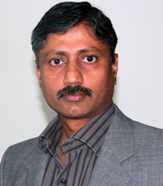 Ganesh is an alumnus of BITS, Pilani, India, and has 25 years of Industry work Experience, mostly in embedded systems, Real Time Systems, OS and Networking Technologies. Ganesh started his career, working for Wipro Systems, Bangalore worked on DTP, and embedded software for a PDP-11 compliant system. He spent 5 years with Lynx Real Time Systems, USA, working on porting and enhancing industry's First POSIX compliant Real Time Unix OS, LynxOS. After spending one brief year in Silicon Graphics, he joined Cisco Systems and has been with Cisco past 18 years. At Cisco, he has worked on Designing Platform Specific Software for Edge, Core routers, been an System architect for few Routing platforms, picking the right mix of CPU, Network Processors and IO devices, while architecting and designing products. He has worked on Networking Technologies like QOS, MPLS, Broadband Aggregation, High Availability, Wifi Wireless among others.
Ganesh is an alumnus of BITS, Pilani, India, and has 25 years of Industry work Experience, mostly in embedded systems, Real Time Systems, OS and Networking Technologies. Ganesh started his career, working for Wipro Systems, Bangalore worked on DTP, and embedded software for a PDP-11 compliant system. He spent 5 years with Lynx Real Time Systems, USA, working on porting and enhancing industry's First POSIX compliant Real Time Unix OS, LynxOS. After spending one brief year in Silicon Graphics, he joined Cisco Systems and has been with Cisco past 18 years. At Cisco, he has worked on Designing Platform Specific Software for Edge, Core routers, been an System architect for few Routing platforms, picking the right mix of CPU, Network Processors and IO devices, while architecting and designing products. He has worked on Networking Technologies like QOS, MPLS, Broadband Aggregation, High Availability, Wifi Wireless among others.
He is passionate about Innovation and new ways of doing things, and has helped and led few internal initiatives to foster Innovation and Collaboration within and also briefly with Universities. In 2008, he relocated to Cisco Systems, Bangalore in the wireless Business group, with focus on gathering customer requirements and translating that into Executable projects/products and solutions. His Interest areas are in Modular and reusable Software Design, Software Defined Networks, and mentoring and guiding other engineers.
Anurag Kumar Anurag Kumar obtained his B.Tech. degree from the Indian Instit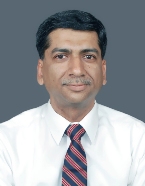 ute of Technology at Kanpur, and the PhD degree from Cornell University, both in Electrical Engineering. He was then with Bell Laboratories, Holmdel, N.J., for over 6 years. Since 1988 he has been with the Indian Institute of Science (IISc), Bangalore, in the Department of Electrical Communication Engineering, where he is now a Professor. He is currently also the Chair of the Electrical Sciences Division at IISc. From 1988 to 2003 he was the Coordinator at IISc of the Education and Research Network Project (ERNET), India's first wide-area packet switching network. His area of research is communication networking, specifically, modeling, analysis, control and optimisation problems arising in communication networks and distributed systems. Recently his research has focused primarily on wireless networking. He is a Fellow of the IEEE, of the Indian National Science Academy (INSA), of the Indian Academy of Science (IASc), of the Indian National Academy of Engineering (INAE), and of The World Academy of Sciences (TWAS). He is a recepient of the Indian Institute of Science Alumni Award for Engineering Research for 2008.
ute of Technology at Kanpur, and the PhD degree from Cornell University, both in Electrical Engineering. He was then with Bell Laboratories, Holmdel, N.J., for over 6 years. Since 1988 he has been with the Indian Institute of Science (IISc), Bangalore, in the Department of Electrical Communication Engineering, where he is now a Professor. He is currently also the Chair of the Electrical Sciences Division at IISc. From 1988 to 2003 he was the Coordinator at IISc of the Education and Research Network Project (ERNET), India's first wide-area packet switching network. His area of research is communication networking, specifically, modeling, analysis, control and optimisation problems arising in communication networks and distributed systems. Recently his research has focused primarily on wireless networking. He is a Fellow of the IEEE, of the Indian National Science Academy (INSA), of the Indian Academy of Science (IASc), of the Indian National Academy of Engineering (INAE), and of The World Academy of Sciences (TWAS). He is a recepient of the Indian Institute of Science Alumni Award for Engineering Research for 2008.
Nick McKeown (PhD/MS UC Berkeley ’95/’92; B.E Univ. of Leeds, ’86) is the  Kleiner Perkins, Mayfield and Sequoia Professor of Electrical Engineering and Computer Science at Stanford University, and Faculty Director of the Open Networking Research Center. From 1986-1989 he worked for Hewlett-Packard Labs in Bristol, England. In 1995, he helped architect Cisco’s GSR 12000 router. In 1997 Nick co-founded Abrizio Inc. (acquired by PMC-Sierra), where he was CTO. He was co-founder and CEO of Nemo (“Network Memory”), which is now part of Cisco. In 2007 he co-founded Nicira (acquired by VMware) with Martin Casado and Scott Shenker. In 2011, he co-founded the Open Networking Foundation (ONF) with Scott Shenker.
Kleiner Perkins, Mayfield and Sequoia Professor of Electrical Engineering and Computer Science at Stanford University, and Faculty Director of the Open Networking Research Center. From 1986-1989 he worked for Hewlett-Packard Labs in Bristol, England. In 1995, he helped architect Cisco’s GSR 12000 router. In 1997 Nick co-founded Abrizio Inc. (acquired by PMC-Sierra), where he was CTO. He was co-founder and CEO of Nemo (“Network Memory”), which is now part of Cisco. In 2007 he co-founded Nicira (acquired by VMware) with Martin Casado and Scott Shenker. In 2011, he co-founded the Open Networking Foundation (ONF) with Scott Shenker.
Nick is a member of the US National Academy of Engineering (NAE), a Fellow of the Royal Academy of Engineering (UK), Fellow of the IEEE and the ACM. In 2005, he was awarded the British Computer Society Lovelace Medal, in 2009 the IEEE Kobayashi Computer and Communications Award and in 2012 the ACM Sigcomm Lifetime Achievement Award. Nick is the STMicroelectronics Faculty Scholar, the Robert Noyce Faculty Fellow, a Fellow of the Powell Foundation and the Alfred P. Sloan Foundation, and recipient of a CAREER award from the National Science Foundation. In 2000, he received the IEEE Rice Award for the best paper in communications theory. Nick’s current research interests include software defined networks (SDN), how to enable more rapid improvements to the Internet infrastructure, and tools and platforms for networking research and teaching.
Prof. Ramesh K. Sitaraman is currently in the School of Computer Science at the University of Massachusetts at Amherst and is an Akamai Fellow. He is best known for his pioneering role in creating the first large content delivery networks (CDNs) that currently deliver much of the world’s web content, streaming videos, and online applications. As a principal architect, he helped create Akamai's distributed network that currently serves more than 25% of world's web traffic. His research focuses on all aspects of Internet-scale distributed systems, including algorithms, architectures, performance, energy efficiency, user behavior, and economics. He received a B. Tech. in electrical engineering from the Indian Institute of Technology, Madras. and a Ph.D. in computer science from Princeton University.
Bhaskaran Raman received his B.Tech in Computer Science and Engineering
from Indian Institute of Technology, Madras in May 1997. He received his
M.S. and Ph.D. in Computer Science from University of California,
Berkeley, in 1999 and 2002 respectively. He was a faculty in the CSE
department at Indian Institute of Technology, Kanpur (India) from June
2003. Since July 2007, he is a faculty at the CSE department at Indian
Institute of Technology, Bombay (India). His research interests and
expertise are in communication networks, wireless/mobile networks,
large-scale Internet-based systems, and Internet middleware services. His
current focus and specific interest is in appropriate technology in the
domain of communication and computing for rural use.
Rajesh is an assistant professor at Singapore Management University's School of Information Systems. He received his Ph.D. in computer science from Carnegie Mellon University and has over 15 years of research experience in the broad area of mobile systems and software. Some of the diverse areas that he has worked on include infrastructure support for multiplayer mobile games, improvements to public transportation networks, understanding and improving the software development process in outsourced environments, and developing and testing novel retail-focused mobile applications.
Rajesh is also a director of the new LiveLabs Urban LifeStyle Innovation Platform. The goal of this platform is to allow mobile applications and services to be tested with real users on real phones in real-world environments. Currently, LiveLabs has been deployed at a university campus with further deployments at an airport, a resort island, and a large mall planned for the near future. More details about LiveLabs can be obtained at http://www.livelabs.smu.edu.sg
Sean Blagsvedt is the CEO of Babajob.com, which connects employers to informal sector employees in the developing world - such as maids, cooks and office helpers - through a combination of mobile phones, location, skill and price filtering and social connections. The site has added over 1 million users and 2 million job positions, launched with 4 mobile carriers in India and has been profiled by the New York Times as a significant innovation that “seeks to bring the social-networking revolution to the world’s poor.”
Previously, Sean spent 9 years with Microsoft in the Office, Windows and Research groups. In 2004, Sean moved to Bangalore as the 3rd member of Microsoft Research India, heading the Program Management and Advanced Prototyping team, focusing on novel approaches to mobile phones and technology in emerging markets.
Prior to Microsoft, Sean worked at the White House with the Internet Policy czar, Ira Magaziner. Sean holds dual bachelor degrees in Computer Science and Public Policy from Brown University (1998). He is a TED Fellow and really likes having fun too.
Ed Cutrell manages the Technology for Emerging Markets (TEM) group at Microsoft Research India. Ed has been working in the field of human-computer interaction since 2000, studying everything from novel interaction techniques to interfaces for search and information retrieval. His current research focuses on Information and Communication Technologies for Development (ICT4D). The goal of this work is to understand how people in the world's poor and developing communities interact with information technologies and to invent new ways for technology to meet their needs and aspirations and to support socio-economic development. He is trained in cognitive neuropsychology, with a PhD from the University of Oregon.
http://research.microsoft.com/~cutrell
http://research.microsoft.com/en-us/groups/tem/
Deva P. Seetharam founded and leads the Smarter Energy Systems group at IBM Research India. He also serves as the Smarter Energy Programme Leader at the UBD | IBM center and the scientific coordinator of Wattalyst, a European Union framework consortium. His research interests are in microgrids, demand management technologies and networked embedded systems. Prior to joining IBM, he led the pervasive media research at France Telecom in Boston. On the entrepreneurial side, he co-founded RadioSherpa and served as the CTO, and was instrumental in selling the company to Tune-In. He holds a MS from MIT Media Laboratory and a BE from Bharathiyar university.
Bikram Sengupta leads the Smarter Education group at IBM Research India. The group is developing technologies for transforming education through deep analytics and personalization in support of blended and adaptive learning. Their work provides the research thrust to IBM’s increasing interests in education to help build a smarter classroom and an education system for the future. The group expects the transformation in education to be amongst the key innovations that will change our lives in the next few years.
Prior to joining Education research, Bikram led the Services Analytics group at IBM Research India during 2008-2012. The mission of this group was to develop tools, methods and analytics that can help IBM’s services business standardize and optimize operations, adopt innovative models for global delivery, gain deep insights on delivery health and enable outcome-oriented services business. At IBM, Bikram has also worked for some time in the area of systems management, particularly techniques and tools for application, infrastructure and process monitoring. In the past he has worked extensively on formal techniques for system analysis and design, particularly on graphical formalisms such as sequence diagrams and state-based notations.
Bikram joined IBM Research in 2003. Prior to that, he received PhD and MS degrees in Computer Science from Stony Brook University, NY, USA, and a Bachelor of Computer Science and Engineering from Jadavpur University, India.

